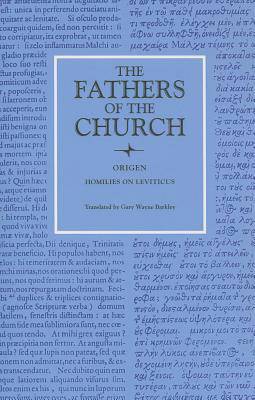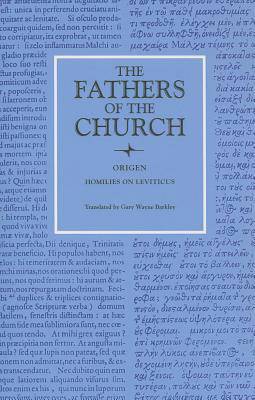
- Retrait gratuit dans votre magasin Club
- 7.000.000 titres dans notre catalogue
- Payer en toute sécurité
- Toujours un magasin près de chez vous
- Retrait gratuit dans votre magasin Club
- 7.000.000 titres dans notre catalogue
- Payer en toute sécurité
- Toujours un magasin près de chez vous
Description
This new translation of Origen's Homilies on Leviticus may be read as a companion to Ronald E. Heine's translation of Origen's Homilies on Genesis and Exodus, volume 71 in the Fathers of the Church series. Both volumes reveal Origen's tenacious belief that, although the meaning of Scripture was threefold, that is, literal, moral, and spiritual, the most important interpretation was the spiritual. The Homilies on Leviticus were delivered during a three-year cycle between 238 and 244 in Alexandria where Origen was a brilliant teacher, theologian, churchman, and exegete until his imprisonment and torture under Decian and his reluctant death in Tyre in 253/254. They were translated by Rufinus, who admitted to having changed the text by condensing the homilies and, at the same time, expanding some of the explanations. Nevertheless they provide valuable insights on the third-century Church, touching on topics of conversion from sin, works of piety, baptism, Lent and fasting, the ordination of a priest, and the process of Christian discipline. Perhaps Origen's most significant theological contribution, however, is his doctrine of the Trinity which influenced the Trinitarian debates of the fourth and fifth centuries. Origen was the most prolific write of all the writers of the Early Church. Eusebius numbers his books at 2000, and St. Jerome writes of 786 works. But Origen's chief aim, as an interpreter of the Scriptures, was to draw out the historical meaning of the text and communicate that wisdom of perception to his flock. It was this that inspired his profound spiritual interpretation in the Homilies on Leviticus so finely translated in this volume.
Spécifications
Parties prenantes
- Auteur(s) :
- Editeur:
Contenu
- Nombre de pages :
- 314
- Langue:
- Anglais
- Collection :
- Tome:
- n° 83
Caractéristiques
- EAN:
- 9780813214320
- Date de parution :
- 01-01-90
- Format:
- Livre broché
- Format numérique:
- Trade paperback (VS)
- Dimensions :
- 135 mm x 208 mm
- Poids :
- 362 g







